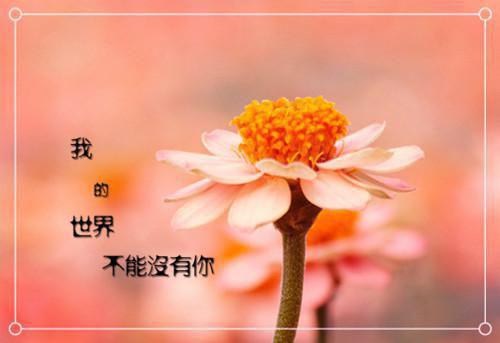一些好的文章散文通常也会有人用英语去写读后感,下面是小编给大家整理的散文的英语读后感,希望大家喜欢。
散文英语读后感 《巴黎圣母院》英语读后感
《 Notre Dame cathedral》 is one known far and wide romantic faction strength which Victor Hugo writes . I take advantage of this summer vacation free time, read this great work.
Notre Dame cathedral's story, actually was one at that time social epic poem, since brimmed with really. Friendly. Beautiful, also the flow selfish desire and is false. Regardless of is good beautiful Asmelada ,or has the ugly semblance, Cacimodo with one pure mind, they represent the great amount the lower level populace which suppresses; Perhaps is sinister Coloud, he is appears by the theocracy face, all load bearing one kind of author's ponder.The author in this work, for with the clown, was beautifully friendly and wickedly does the best annotation, or take above three people as the example, the rebel Asmelada has the beautiful semblance and the chaste good mind, as well as pitiful destiny, but Cacimodo, he withstood destiny deceive nicely, the innermost feelings is his misery is graver, but Coloud maintained the benighted social rights and interests, he had brutally. Void mind and evil passion. Good person physique hateful, but the evil person actually says the appearance shore however, bright set off, social unfair manifest.
But the article result also is when the opposition society until criticism: All beautiful is good all swallows by the might and the evil, the lower level people's weak strength in under the king power rule, in the benighted society, only can be reduced to ashes. Was palatial Notre Dame cathedral, how many world tragedy testimony once, in Hugo the novel, he as if had the life breath, he sheltered Asmelada ,exposed Coloud the crime, regret the populace attack the magnificent feat which dark actually heroically devoted……
Another the question which is worth pondering is: Who is the hero? Asmelada or Cacimodo? I think all is not, but is in the article by the Louis 11 rank smell of blood suppression rather for sacreficed the populace gate, Asmelada with Cacimodo is not in them the representative, Asmelada is loves with the beautiful symbol, Cacimodo not many represents is unfortunate and the pain. But they, all suffer a tragic middle ages ignorant evil forces devastate, one each one painful soul is bleeding, flows the tear. Merely is Notre Dame cathedral's above engraves " the destiny "? They are in middle ages France, despotism sacrificial victim.
The entire story rich tragic color, the plot intense is moving, exciting. Author Hugo through " Notre Dame cathedral " this story, but also disclosed at that time the dark society's essence to the people. This fascinating story likes that Ccimodo clocks sound equally shocks several generation of readers' minds.
散文英语读后感《黑骏马》英文读后感
“Animals deserve our kindness, sympathy and understanding,” that is what Anna Sewell-the author of Black Beauty-wanted to convince her readers. Thanks to Sewell, I now think about the animal-human relationship from both the human and the animal’s point of view.
The inspiration for Anna Sewell’s novel was drawn from her own relationship with horses. Anna Sewell was born on March 20th, 1820 in Norfolk, England and was crippled while still very young. Due to her disability, she relied on horse-drawn carriages and grew to love horses as a result. She also became appalled by the careless and cruel treatment horses often received from humans and determined to write a book.. In the second year of work on the book, she was told that she had only eighteen months to live, but she persevered in order “to induce kindness, sympathy and an understanding [of the ] treatment of horses.” Five years later, she was still working on Black Beauty, her only book. Unfortunately, Sewell died a few months after publication and never learned of the book’s huge success. Black Beauty formed an impassioned plea for animal rights at a time when such a notion had been dismissed as ridiculous.
The novel portrayed the real condition of working horses living in Britain during the Victorian Era. In that time period, the wealthy thought that their horses were treated well because they never stepped into the stable. In order to call people’s attention to horses’ hard life, Sewell tells the story through the first-person narrative voice of a horse. This innovative personification of an animal made the book a real success. Readers heard the stories straight from the horse’s mouth, literally, as an animal spoke of extremes of joy and suffering. People were shocked by the truth exposed by the novel and changed their attitudes towards animals.
Sewell formed the novel with three kinds of characters: Black Beauty, Ginger and other farm animals. Through their different experiences, I saw similarly painful lives led by the animals. This method made the earnest appeal for animal rights become more and more persuasive.
As a domestic animal, Black Beauty was continuously sold from one family to another. Over the years Beauty enjoyed good masters but also endured mean ones. Sometimes, he was cared for and at other times tortured. In the end, everything turns out all right in a story that is so tender and yet meaningful. His story was so vivid that caught the readers’ heart. The novel brought people laughter and tears and also enlightened them to understand animals at the same time.
Animals cannot speak so understanding is significant to them. Once, for example, Beauty was drawing the carriage to a wooden bridge. The bridge was flooded out in the river and John, the groom, was not aware that it was cracked. But the quickly realized that something was wrong because of Beauty’s abnormal behavior. Momentarily, a man shouted to them, “Stop! Stop!…The bridge is broken in the middle. If you come across, you’ll fall in the river!” Beauty had saved John. However, if John had not tried to understand what Beauty wanted to tell him, there would definitely have been an accident. I learnt from the story that understanding animals is not only essential to them but is also beneficial to us ourselves.
In order to emphasize the importance of understanding animals, the writer created Ginger as a negative example. Ginger was the friend of Beauty who led a much more miserable life than Beauty did. Once she told Beauty: “When I was trained, several men caught me in a corner of the field and one held my nose so hard that I could only just breathe. Then others pulled my mouth open to put the bit in, and I was pulled along and beaten from behind. They didn’t give me a chance to understand what they wanted.”
Poor Ginger, kindness was all she needed. She was frightened seriously so she bit or kicked to defend any possible attacks. The more she was whipped the more she bit, the more she bit the more she was whipped. In this way, both animals and humans were trapped in a terrible cycle made by human beings. Consequently, humans were frequently hurt by frightened horses. The author thus portrayed Ginger to tell me that harming animals may also harm us.
When I have a sketchy look at other farm animals the writer depicts, it is simple to find more examples of cruel things humans do to animals out of ignorance. This part of the novel expanded people’s scope from only horses to all the animals and deepened the plea for animal rights and that made the novel more successful.
Sir Oliver, the old horse, had a 20-centimeter-long tail. His beautiful long tail was cut off just because the owners thought it was fashionable. Humans never understood how pained a horse is when he can’t brush flies off his sides and back legs.
Sky, the terrier, had had a part of her ears sheared off. Her owners wanted to make her look cute and ignored that parts of her ears were intended to protect the delicate parts from injury. “Why don’t people cut their own children ‘s ears to make them look lovely?” Asked the poor dog angrily. Yes, why can’t we think from the animals’ perspective?
“Black Beauty is a heartbreaking story,” I thought when my mother read it to me when I was a child. As a child I was haunted by the described cruelty to those horses. Now I deeply hope, in the future, we will be able to tell our children that because of the book, and others like it, such mistreatment of animals no longer exists. And they just need to enjoy the novel as a beautiful historical documentary recording the progress of upholding animal rights. At that time, the dream of the author will have come true and her hard work will have been rewarded.



